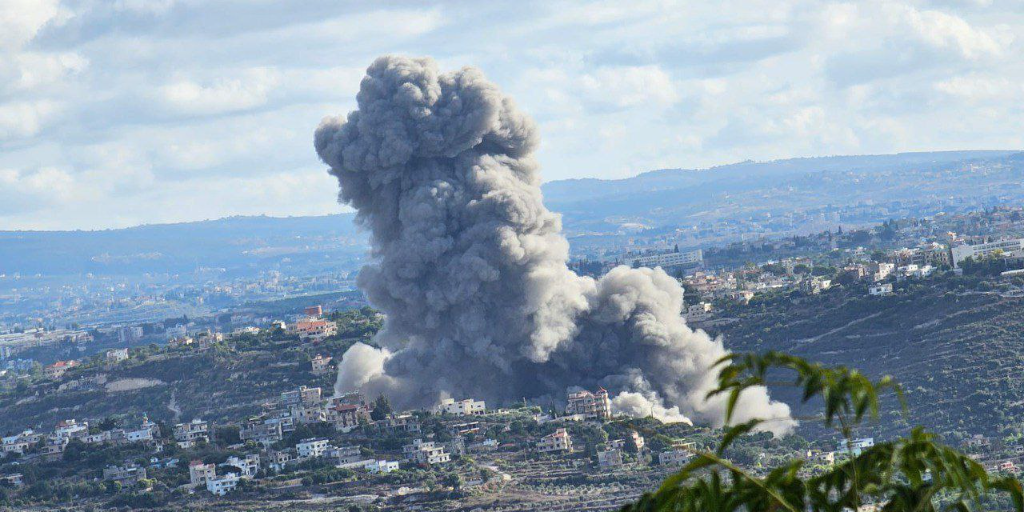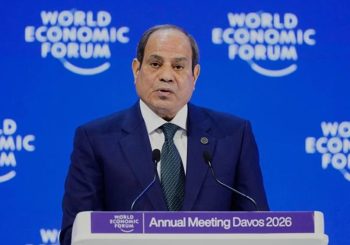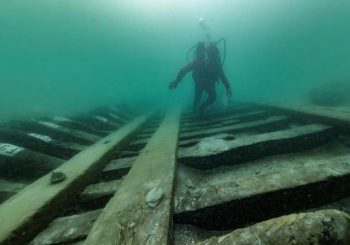Israel carried out an on-ground invasion of Lebanon on the morning of 1 October, the Israeli Defense Forces (IDF) confirmed in a media statement.
Israel’s invasion signals a full-scale regional escalation — an action several neighbouring countries, including Egypt, have warned of several times in the past months. The escalation also comes nearly a year after Israel’s first military offensive in Gaza following the events of 7 October.
The IDF described the operation as “limited, localized, targeted ground raids” in southern Lebanon. The statement further detailed that the operation aimed at dismantling Hezbollah’s “infrastructure,” which it alleges poses a direct threat to Israeli communities near the northern border.
IDF spokesperson Daniel Hagari also accused Hezbollah of preparing villages near the border as “staging grounds for an October 7-style invasion.”
Despite the IDF’s claim of maintaining a limited ground invasion, Defense Minister Yoav Gallant asserted that the Israeli army is prepared to deploy forces “from the air, sea, and land” to confront Hezbollah — indicating the possibility of a broader invasion.
Lebanese troops were seen withdrawing from the southern borders a day in reaction to imminent Israel’s invasion, according to Reuters.
HEZBOLLAH RESPONDS
Hezbollah’s deputy leader, Sheikh Naim Qassem, indicated in a speech a day before the invasion that the group is prepared for any Israeli incursion, describing their recent attacks as merely the “minimum” response.
“Israel attacks Lebanese territory and civilians and commits massacres with America’s full support and all of its capabilities,” Qassem added.
He concluded his speech by reasserting Hebzollah’s intentions to continue to support Gaza in defense of Palestine.
LEADERS RESPOND
Global leaders, including US President Joe Biden, have called for a ceasefire. UK Foreign Secretary David Lammy also engaged in talks with U.S. Secretary of State Antony Blinken, with both officials underscoring the need to halt hostilities and ensure the release of hostages taken by Hamas.
EU foreign policy chief Josep Borrell warned that further military escalation could significantly worsen the crisis and must be avoided.
Egypt and the Arab League are yet to react to the invasion.
THE ISRAEL-HEZBOLLAH WAR SO FAR
Hostilities between Israel and Hezbollah — an Iran-backed Shia-Islamist militant group — have simmered since the militia’s inception in the 1980s, periodically erupting into skirmishes and full-scale conflicts, such as the 34-day war in 2006.
Since 7 October, Hezbollah has framed its involvement as a show of solidarity with Palestinians in Gaza. Cross-border attacks were also seen as a strategic move by the militant group to strain Israeli resources and attention.
The conflict has escalated over the past month. On 17 September, a series of explosions involving pagers and walkie-talkies used by Hezbollah members and relatives across Lebanon killed 39 people and wounded thousands more.
Israeli forces later conducted an airstrike in Dahieh, an alleged Hezbollah stronghold in southern Beirut, killing Hezbollah figures and hundreds of civilians. Days later, an airstrike on Hezbollah’s headquarters resulted in the assassination of its leader Hassan Nasrallah.
Israel’s unrelenting airstrike operations also killed over 1,100 Lebanese citizens, many of whom were children and women. Approximately 6,000 more have been wounded thus far. The attacks are predicted to have displaced around one million citizens as well.







Comments (0)